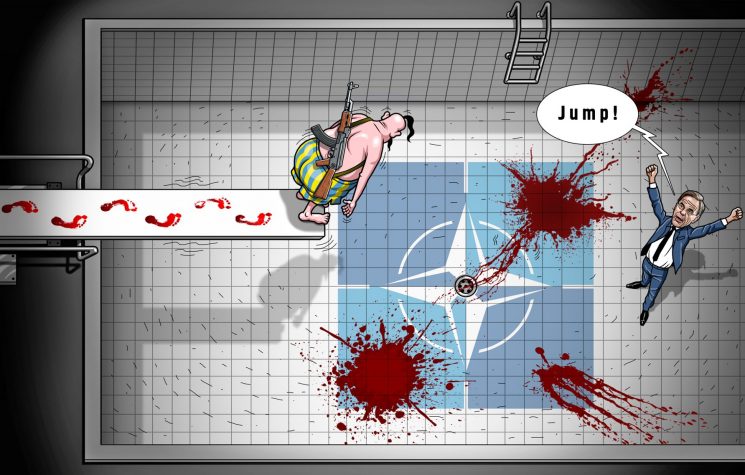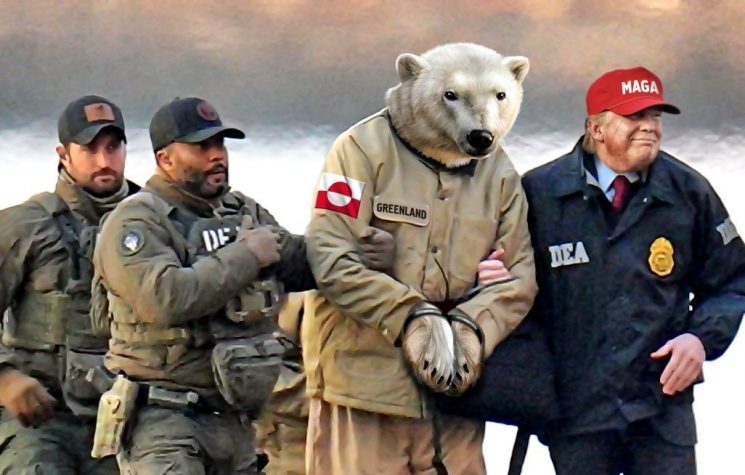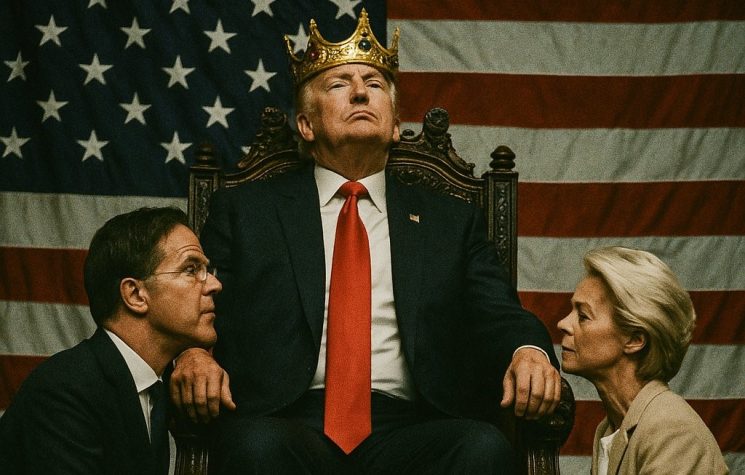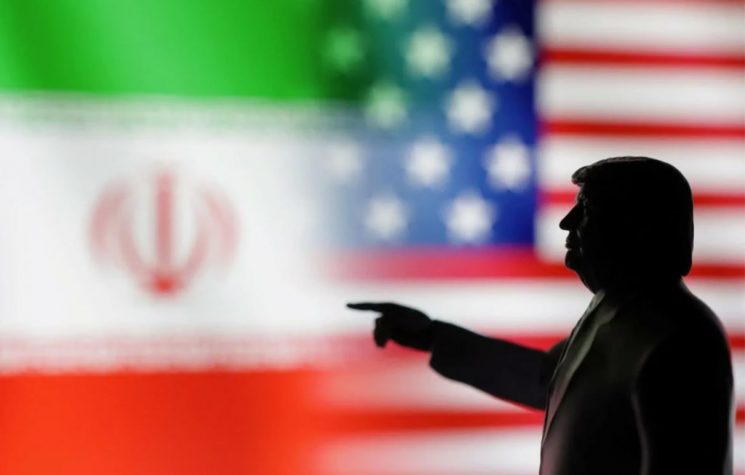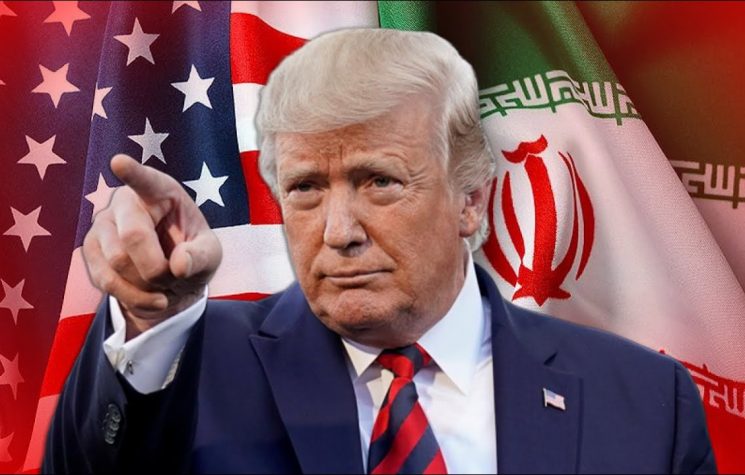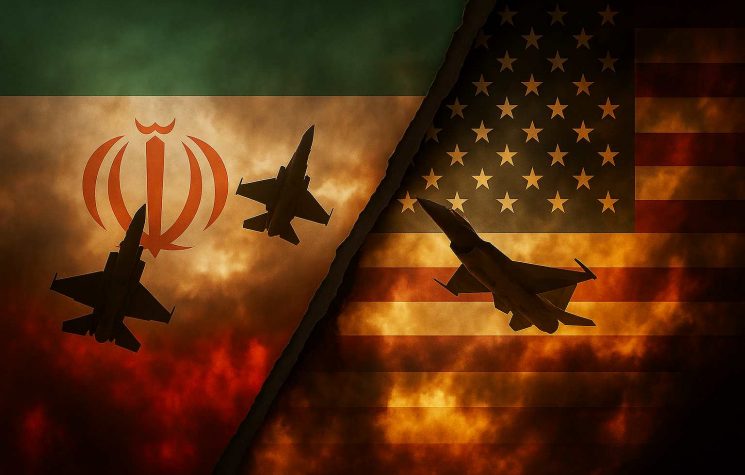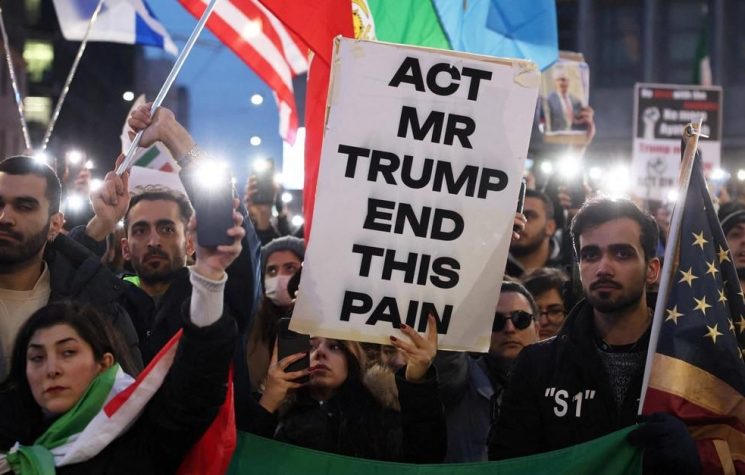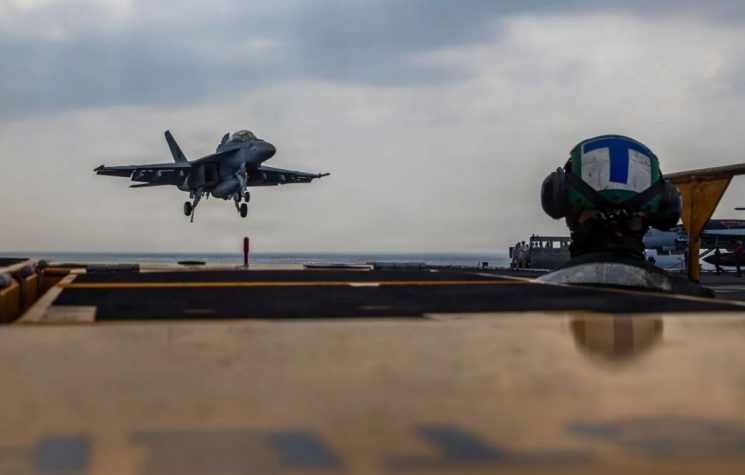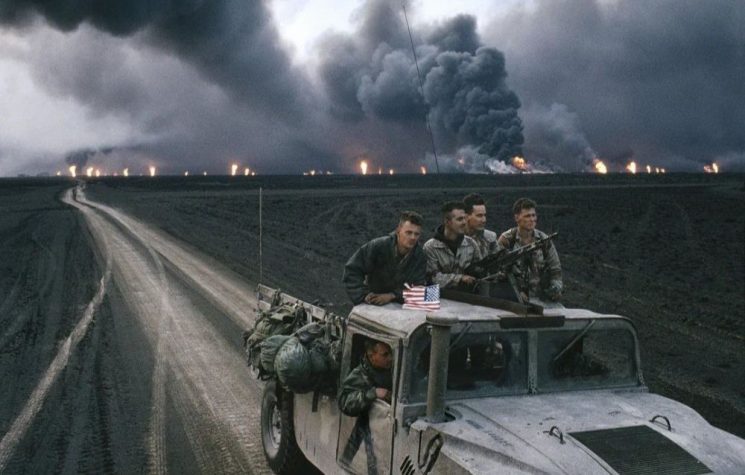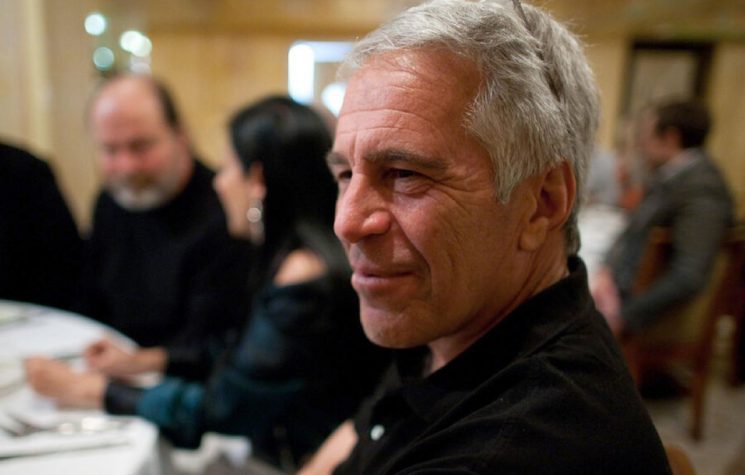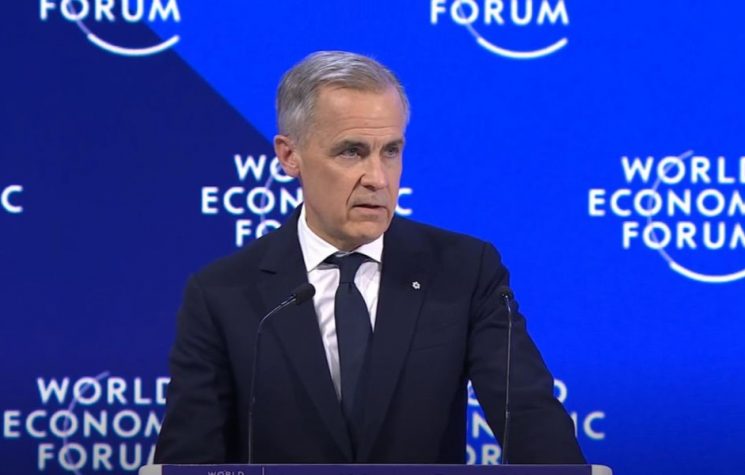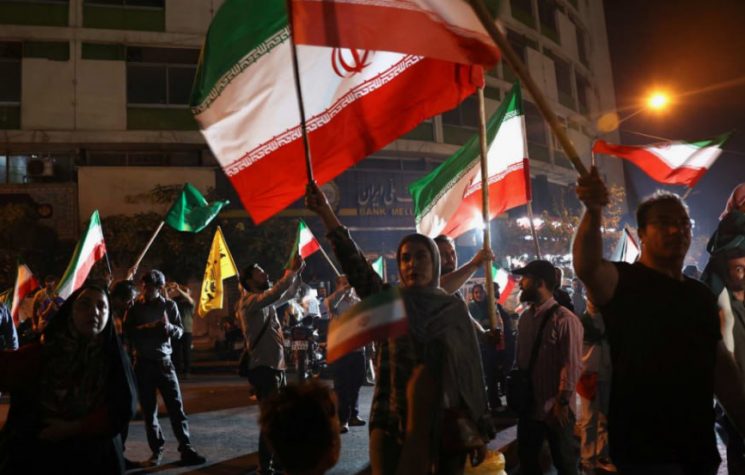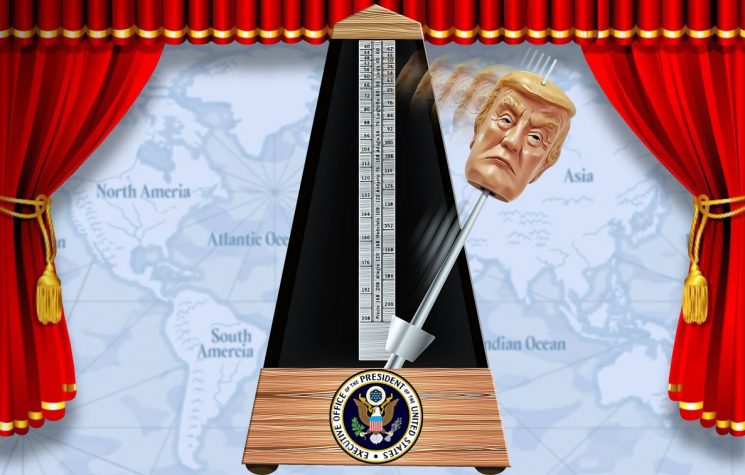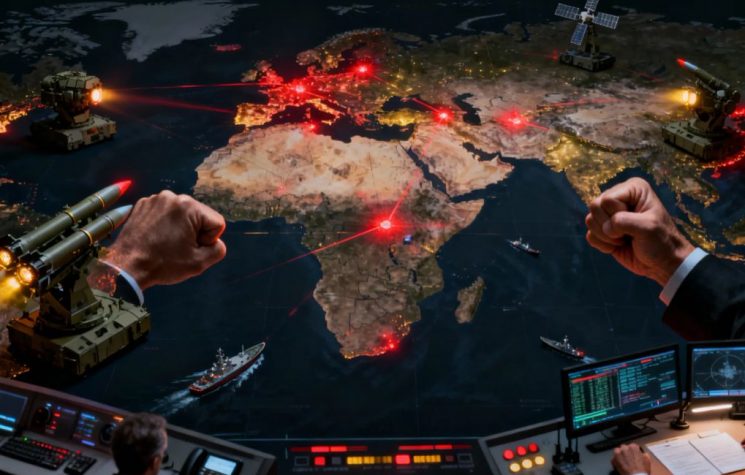Things are no longer as they were, and America will have to decide, before it is too late, what position to take in an increasingly multipolar world.
Join us on Telegram![]() , Twitter
, Twitter![]() , and VK
, and VK![]() .
.
Contact us: info@strategic-culture.su
Anything can happen
What we have seen happening in the recent conflict in the Middle East between Israel and Iran is clear and irrefutable proof of the increasing decline, the inexorable collapse and the imminent end of the American hegemonic system, and more generally of Anglo-American leadership, as well as of the Zionist system closely linked to it.
Let’s try to imagine if what happened in recent days had happened, for example, 30 years ago, at the height of American power on the international stage. It would not have been so much a question of a shorter or longer event, because duration depends on a series of factors that come together, such as the type of conflict, the territory, the concrete operational actions, the resources employed, and, of course, the international situation. But it would certainly have been a conflict in which the United States would have demonstrated, without much effort, its dominance on the international stage, managing to influence the outcome of the situation without having to ask anyone’s permission, at least without any difficulty in speaking loudly and reaffirming its global hegemonic dominance.
This is exactly what did not happen this time. And it did not happen because the United States no longer has that position of dominance over the rest of the world, it no longer has control over nuclear, oil and monetary strategic deterrence, it no longer even has the political credibility to be the guarantor of stability and success for other countries – if anything, the opposite is true.
We need to reflect on this carefully in order to learn the lesson hidden in the – at least temporary – outcome of the conflict.
No longer in first place
In 2010, a historian predicted that American hegemony could come to an end by 2025 – not with a bang, but with a slow whisper – due to growing internal divisions and the rise of rival powers intent on challenging its dominance. Today, that prediction seems to be coming true: the United States is under pressure, both domestically and internationally. Although it still retains military superiority and an economy capable of exerting considerable influence, the structural pillars of its global power are gradually crumbling. This is not necessarily an irreversible decline, but it certainly marks a transition beyond the era of the so-called “American Century”.
After World War II, the U.S. used its economic power, technological dynamism and cultural influence to shape the world order. However, the foundations of this supremacy are weakening. The U.S. share of global GDP has fallen from 50% in the mid-20th century to around 15% today, when adjusted for purchasing power parity. Globalisation, promoted by the United States itself, has redistributed productive capacity, benefiting China in particular.
Domestically, the United States faces a civil war that has been kept under the radar and deliberately downplayed in terms of its severity. Growing economic inequality, increasingly acute political polarisation and a weakening of the collective civic spirit are just some of the problems affecting the health of American society. The chronic inability of various governments to address crucial issues such as wage stagnation, health disparities and deteriorating infrastructure has undermined the country’s internal cohesion and moral authority. Immigration is certainly a problem, but it is one of many on a long list of unresolved issues that have been left to fester.
And why are they so big? Because they have based their economic stability on the principle of global political domination, both militarily and monetarily; with that engine failing, inevitably everything else can only crumble bit by bit, leaving carnage in its wake.
There is no longer pure military invincibility. Dependence on armed intervention as a means of resolving internal crises – this was the American doctrine in the 20th century and beyond – has proved to be a deleterious addiction. This has meant that new conflicts, which have not gone as the U.S. government had hoped, have led to a worsening of the situation in terms of the domestic economy, strategic planning and international credibility.
Who, in fact, still believes in the U.S. as the world’s super-cop? Perhaps the vassal states and a few small colonies. No one else. Indeed, being friends with the U.S. is becoming counterproductive, because it exposes one to a series of limitations and prejudices. All this is nothing more than the logical consequence of years of self-proclaimed superiority.
Lacking effective military superiority, the U.S., together with Israel and Iran, has not been able to do much. Threats and provocations have flown, as Americans always do. Trump has been talking tough, as if he were drunk at a bar, as usual. It is political rhetoric that works with the average American, who is still convinced that he is the best creature in the world, but it is rhetoric that is more like animals screaming because they are angry. We should be careful not to confuse stadium cheering with diplomacy. They are two different things.
Why so many words, instead of the historic American pragmatism? It took George W. Bush 24 hours to blame “Arab terrorists” and start two wars, without asking anyone’s permission. That was twenty years ago, not centuries ago. Today, however, the American president had to take his time, make a few phone calls, listen to the other side, move a few warplanes around and write a large number of posts on a social network he invented and only he reads (Truth).
He was, in fact, unable to act alone, unable to do what Americans usually do. No total war, no bombs in other people’s homes.
This is better, let’s be clear. We are all glad that the situation has been resolved without further destruction, at least for now. But what will America do now? Because yes, it may be true that Trump has exposed many internal enemies and done some cleaning up with this move, but it is equally true that he will have to acknowledge the collapse of American power. He has not done so, as he has taken credit for resolving the situation, avoiding escalation and restoring peace. When ever, Donald?
The truth is that Iran is capable of ruining Israel’s plans and razing its capital to the ground with a small percentage of missiles, destroying the “most advanced defence system in the world” in a matter of minutes. The truth is that Iran has shown that it is not afraid of war, whether against Israel, the U.S. or anyone else. The truth is that Iran has done all this on its own. And it is equally true that Iran is located in that part of the world which is a bottomless pit for America, from which it can extract dollars upon dollars by controlling global energy supplies, and this was and remains a problem for the United States of America, which instead of thinking about how to digest the failure of its colonialism, perhaps by seeking balanced solutions in line with genuine international cooperation, is thinking about how to pass off what is a defeat as a victory.
If you travel around the world and ask people abroad what they think of Donald Trump’s “great success”, you will find that only in the West have analysts interpreted it as positive and successful, while in the rest of the world, especially in Asia, it is clear that it is an illusory success, because it is a defeat disguised as a diplomatic victory.
Other major powers will also learn lessons from an event like this. It was a very important test. Iran emerges stronger and with international support that was not easy to predict. The U.S. emerges weakened and with a need to reposition itself. Israel, in all this, confirms its criminal and dangerous stature for the whole world. It is very likely that Trump will try to bring down Netanyahu, as agreed with Iran, but he will save the Zionism he is so fond of, because the Zionist project of Greater Israel and the reconstruction of the Third Temple are two goals of the presidential mandate that cannot be disregarded even by the Potus.
Things are no longer as they were, and America will have to decide, before it is too late, what position to take in an increasingly multipolar world. Because the day may come when the United States, finding itself in a terrible crisis, will receive help from no one. And that would be the logical and just retribution for all the evil they have spread throughout the world.












